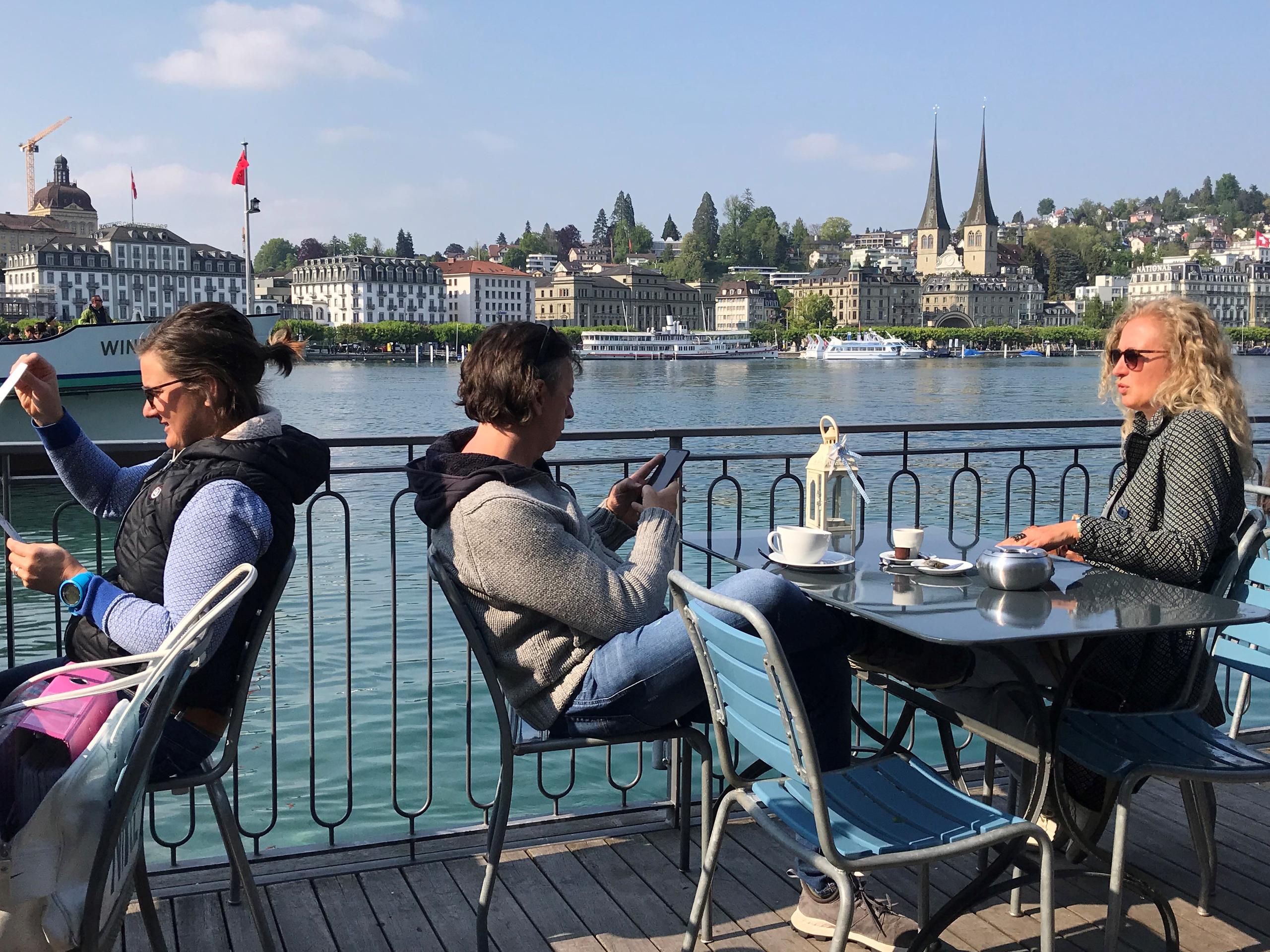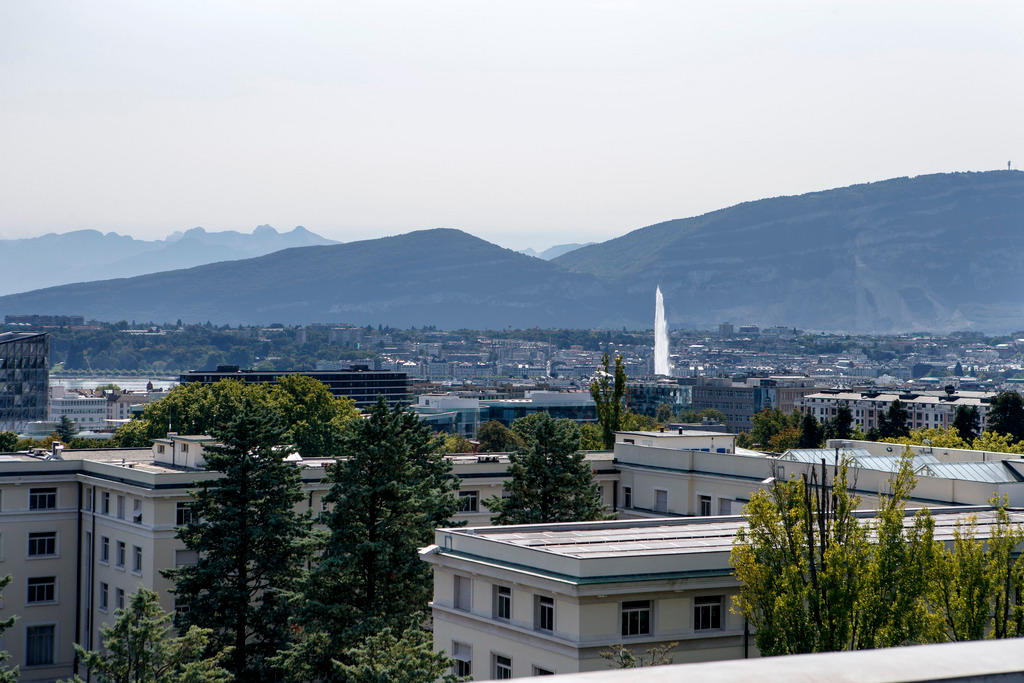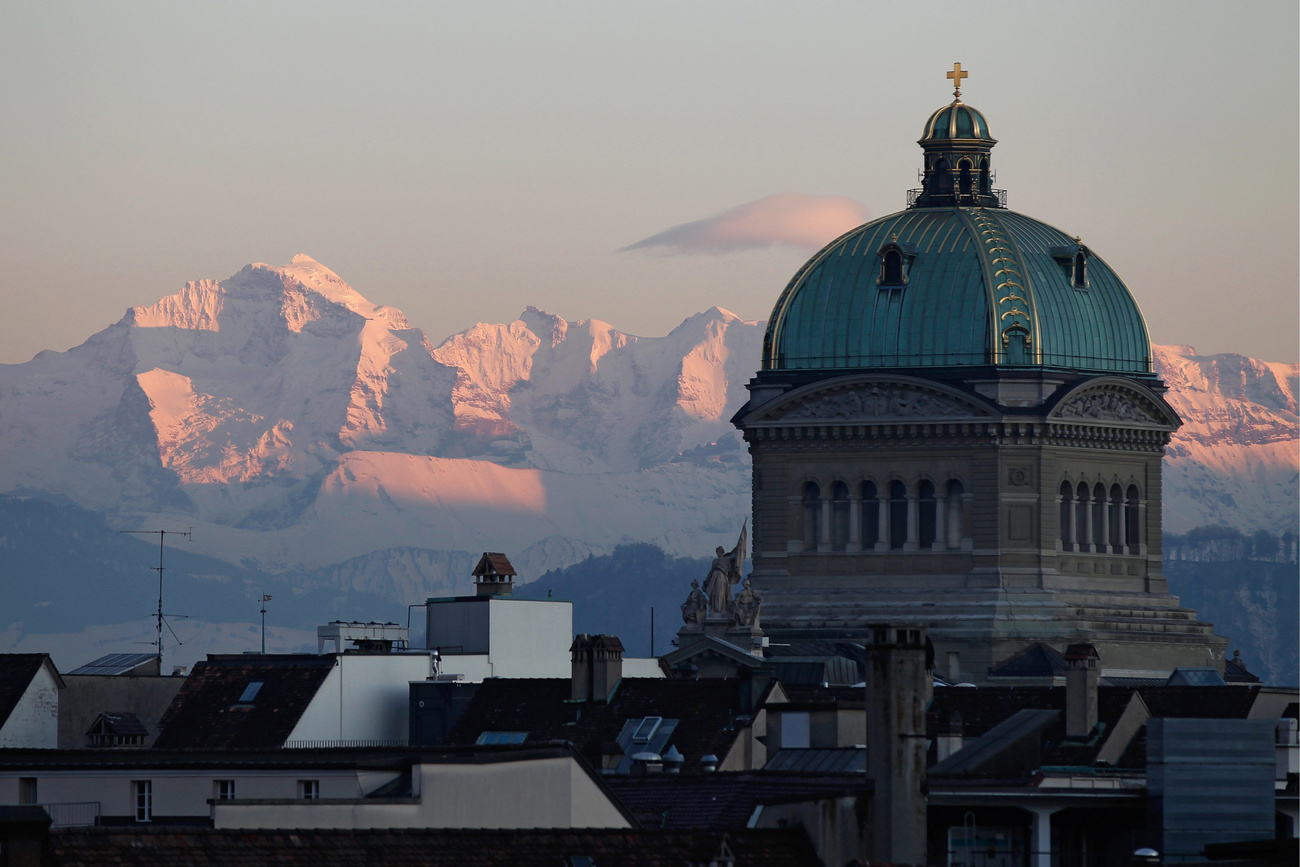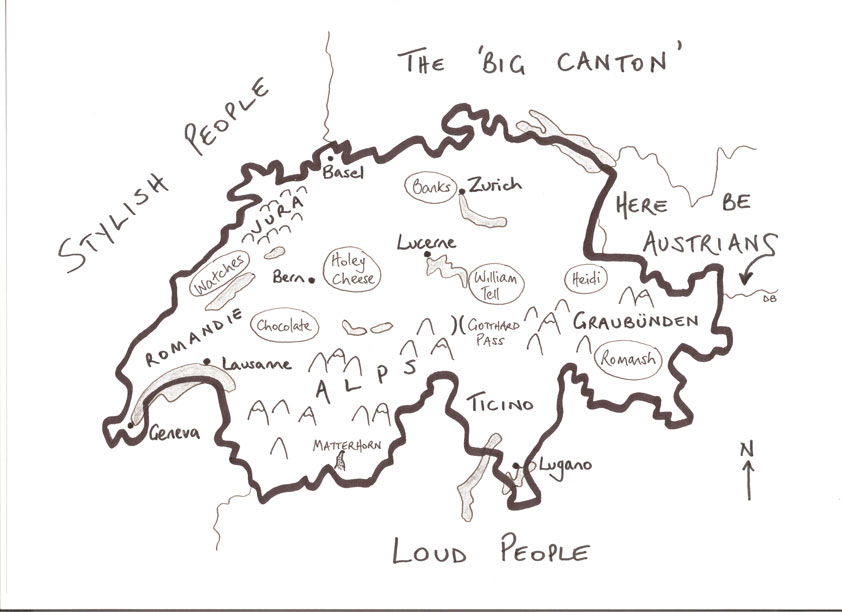Many Swiss ‘know little’ about International Geneva

Switzerland invests millions in its host strategy towards so-called “International Geneva”, yet many people in the majority German-speaking region are unfamiliar with the work carried out there, the head of a think tank claims.
On a sunny May afternoon in Lucerne in central Switzerland, the work of the United Nations and other international organisations in Geneva seems a distant concern as crowds of Chinese tourists and locals cross the Chapel Bridge or take ferries down the lake.
On Thursday evening, however, Geneva took centre stage in the German-speaking city, as Lucerne University hosted the last stop of a tour called “International Geneva – the world in Switzerland”External link.
The tour, organised by the Swiss foreign policy think tank ForausExternal link, involved a series of conferences in nine cities – mainly in German-speaking regions – to raise awareness about the role and work of International Geneva in Switzerland.
Big gaps
Foraus Director Lukas Hupfer said tour participants had shown great interest, but he felt there were big gaps in their knowledge.
“I was surprised – worried, even – to see how little people knew about International Geneva and the UN,” he said. “People are concerned about what’s going on in the world but cannot really grasp what multilateral diplomacy is.”
“We think International Geneva is really important for international governance, as it brings together different actors, including people from science, government, diplomats and NGOs,” Hupfer noted. “It needs to be strengthened as multilateralism is facing major challenges.”
Lucerne panellist Christine Beerli, the former ICRC vice president and current president of the Initiatives of Change Switzerland groupExternal link, was more measured.
“I think the Swiss Germans are very clear that multilateralism and humanitarianism are an enormous advantage,” she said. “It’s the city of Geneva itself which seems rather distant – three hours by train and a very international city. The work that’s done in Geneva, by the Red Cross for example, is very close to the Swiss Germans. But the large number of diplomats and the UN don’t really correspond to their way of thinking.”
Global governance
Geneva is currently home to the European headquarters of the United Nations, 37 international organisations, such as the World Trade Organisation (WTO), 380 NGOs and 170 diplomatic missions. In all, there are over 30,000 international civil servants and diplomats. And in 2017, a record 3,364 international conferences and meetings pulled in over 220,000 participants.
Beyond the statistics, the UN insists it is a centre of global governance where decisions taken have a direct impact on people’s lives.
“When you brush your teeth, the amount of chemicals in your toothpaste is decided by norms adopted in Geneva,” UN Director-General Michael Moller recently told the Tribune de Genève newspaper.
The Swiss government says International Geneva offers numerous benefits to the small Alpine nation. The new host state strategy paper covering the 2020-2023 periodExternal link, which must be approved by parliament, outlines how International Geneva helps Switzerland meet its foreign policy objectives, promotes Swiss values, offers access to officials and decision-makers and visibility, and provides interesting financial returns – organisations and NGOs spend or invest CHF3 billion ($2.9 billion) a year in Switzerland.
Why the lack of interest?
Hupfer says parliamentarians in Bern seem to understand the arguments for investing CHF112 million in International Geneva and believes they are likely to validate the new strategy.
As to the public, they are familiar with the traditional narrative about Geneva being a humanitarian platform for the Red Cross and other agencies, said the Foraus director. But they don’t realise the full scope of the work done, which includes other issues like the UN Sustainable Development Goals, internet governance, labour rights and migration. And they don’t really see the economic benefits, he added.
So, who is to blame for the lack of knowledge or interest? Observers point out that Swiss German media are not really covering International Geneva, and political education in schools varies hugely from canton to canton and from teacher to teacher.
Meanwhile some participants on Thursday pointed the finger at the Swiss government, accusing it of sending incoherent messages on recent multilateral issues: backtracking on the UN Global Compact for Migration and postponing ratification of the UN treaty banning nuclear weapons.
“This tour confirmed our analysis that there is room for improvement and that […] it’s important to raise awareness particularly among the younger generation about why we have this system,” said Hupfer.
“There is a need to have more communication. This is not just the role of the government. It’s also down to organisations in Geneva and schools in Swiss German regions to have multilateralism, International Geneva and the UN as part of their curriculum and political education.”

More
Geneva hits the road to seduce Swiss

In compliance with the JTI standards
More: SWI swissinfo.ch certified by the Journalism Trust Initiative
















You can find an overview of ongoing debates with our journalists here . Please join us!
If you want to start a conversation about a topic raised in this article or want to report factual errors, email us at english@swissinfo.ch.